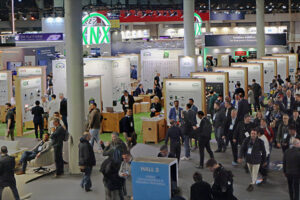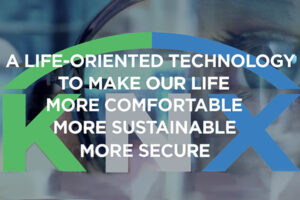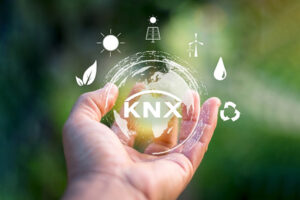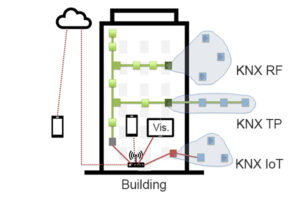
ISE 2025 Show Report – member companies on the KNX stand
Yasmin Hashmi presents the highlights of what was shown on the KNX stand by KNX member companies at ISE 2025. Integrated Systems Europe (ISE) is

Troubleshooting: KNX lights up the way
Simon Buddle explains why the diagnostic capabilities of KNX devices make fault finding so much easier. As part of my day-to-day world, I interact with

The KNX Security Check: a must for systems allowing remote access
Michael Critchfield explains why remote access is desirable, what the pitfalls can be, and how to ensure it is secure. KNX Secure, including both IP

Happy New Year: the future looks bright with KNX
Simon Buddle takes stock of the amazing technology so many of us now take for granted, and makes the case for why KNX will continue

ETS6.3.0: changes to signing in, licensing, and creating a new project
Michael Critchfield gives us a closer look at some of the changes introduced in ETS6.3.0, including signing in, licensing, and creating a new project. ETS6.3.0

KNX and Matter: whatever the customer wants
Simon Buddle takes a look at Matter and how it can be integrated with KNX to offer a solution for any piece of smart technology

Sustainability: how KNX avoids products being consigned to the technology scrap heap
Simon Buddle takes a look at how KNX helps create more sustainable homes, and how its inherent flexibility, adaptability, and future-proofing can avoid products being

Sustainability in ETS
Michael Critchfield takes a look at how sustainability is at the heart of ETS and how it can utilise what is already there and build

Back to the Future: KNX at 34 years young and stronger than ever
Simon Buddle takes a look at how KNX has gone from strength to strength over the past 34 years, and pays tribute to its core

ETS6 Tip and Tricks: KNX topology
Michael Critchfield gives an overview of what a KNX installation topology could comprise, and how communication between KNX devices within different media and security types












